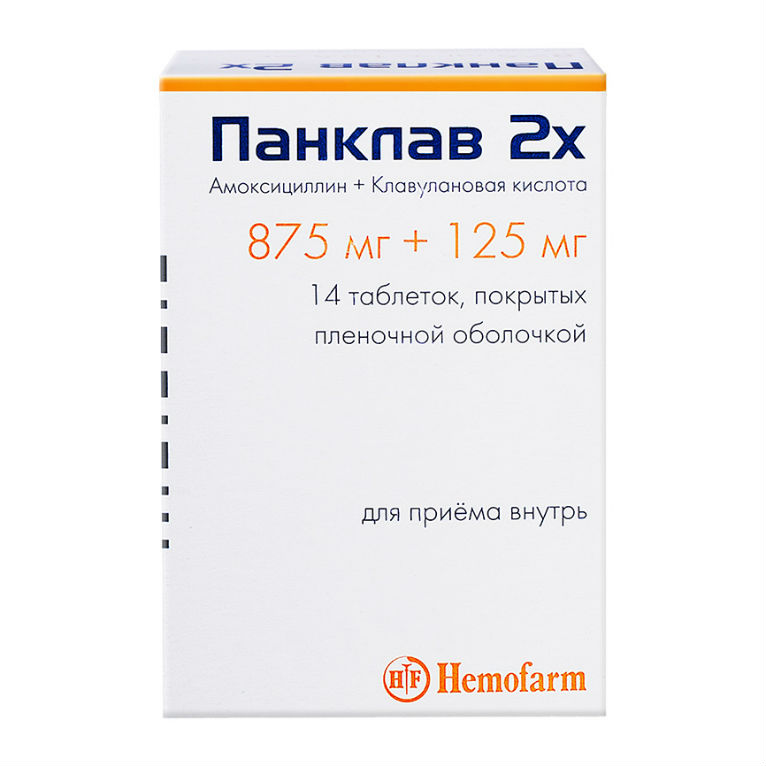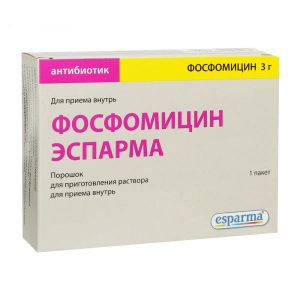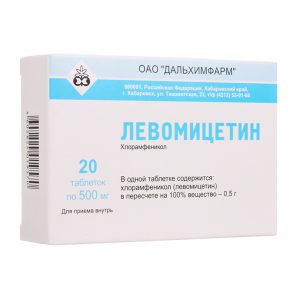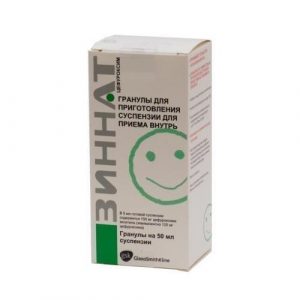Description
Description of white-coated, single-coated white tablets On a kink – yellowish color.
Release form
Film-coated tablets.
packaging 14 pcs – cans of dark glass (1) – packs of cardboard.
Pharmacological action
Pharmacological group: Anti-migraine.
ATX Code: N02CC01.
PHARMACOLOGICAL PROPERTIES
Pharmacodynamics
Sumatriptan is a specific selective agonist of vascular 5-hydroxytryptamine-1 receptors (5 ¢1D), does not affect other subtypes of 5 ¢-serotonin receptors (5 ¢2 – 5 ).
5HT1D receptors are located mainly in the blood vessels of the brain, and their stimulation leads to a narrowing of these vessels. Reduces the sensitivity of the trigeminal nerve. Both of these effects may underlie the anti-migraine action of sumatriptan. The clinical effect is usually observed 30 minutes after oral administration of the drug.
Increased secretion is caused both by a direct effect on the bronchial glands – by stimulating secretion of secretions from the bronchial glands and removal of acidic glycoproteins from acinar cells, and by the reflex method, when the afferent parasympathetic fibers of the gastric mucosa are irritated and the respiratory center is suppressed.
Increased tone of N. vagus stimulates the production of bronchial secretions. The mucus produced by the bronchial glands enhances the activity of the ciliary epithelium, which facilitates the evacuation of mucus from the bronchi and its coughing.
Pharmacokinetics. When administered, butamirate is rapidly and completely absorbed. Communication with plasma proteins is 94%. It undergoes metabolism with the formation of 2 metabolites, which also have an antitussive effect.
Indications
Infectious and inflammatory diseases, caused by microorganisms sensitive to amoxicillin / clavulanic acid: upper respiratory tract infections and ENT organs (including acute and chronic sinusitis, acute and chronic otitis media, peritonsillar abscess, tonsillitis, pharyngitis) lower respiratory tract infections (acute bronchitis with bacterial superinfection, exacerbation of chronic bronchitis, pneumonia) infections of the urinary tract infections of the pelvic organs infections of the skin and soft tissues (including after animal and human bites) infections of bones and joints Islands (including osteomyelitis), biliary tract infections (cholecystitis, cholangitis) infections in dentistry.
Contraindications
Hypersensitivity to the active and / or auxiliary components of Panklav 2X, hypersensitivity to beta-lactam antibiotics (penicillins, cephalosporins, carbapenems, etc.), the presence of a history of cholestatic jaundice, and / or liver caused by taking the penicillin antibiotic or the combination of amoxicillin / clavulanic acid impaired renal function (creatinine clearance less than 30 ml / min) infectious mononucleosis, breastfeeding (lactation), children under 12 years old and / or body weight less than 40 kg (for tablets 875 mg / 125 mg). With caution. Liver failure, chronic renal failure (creatinine clearance greater than 30 ml / min), history of pseudomembranous colitis, advanced age (over 65 years old (see Pharmacokinetics section)), hyperkalemia (see Special instructions), pregnancy.
Use during pregnancy and lactation
During pregnancy, it can be used when the benefits of its use to the mother significantly exceed the risk to the fetus. If necessary, use the drug during lactation, breastfeeding is stopped.
Composition
1 film-coated tablet contains: Core: active ingredients: amoxicillin (in the form of amoxicillin trihydrate) – 875.00 mg, clavulanic acid (in the form of a mixture of potassium clavulanocrystalline and cellulose 1 : 1)) – 125.00 mg. Excipients: microcrystalline cellulose 510.35 mg, sodium carboxy methyl starch (type A) 32.80 mg, magnesium stearate 32.00 mg, anhydrous colloidal silicon dioxide 24.00 mg, butylhydrocyanisole 0.85 mg. Shell: hypromellose 34.84 mg, titanium dioxide E171 – 17.42 mg, propylene glycol 8.17 mg, talc 3.57 mg.
Dosage and administration
Inside, washed down with water at the beginning of a meal (in order to reduce the risk of side effects from the gastrointestinal tract), 2 times a day, strictly observing the interval between doses of 12 hours. Adults and children over 12 years. Adults and children over 12 years of age (weighing 40 kg or more) – take 1 tablet 2 times a day, every 12 hours. The maximum daily dose of amoxicillin for adults is 6 g, for children – 45 mg / kg / day. The maximum daily dose of clavulanic acid for adults (in the form of potassium clavulanate) is 600 mg, for children 10 mg / kg / day. The course of treatment for 5-14 days is set individually, taking into account the characteristics of the pathogen, localization and severity of the infection. Dosage for renal failure Tablets 875 mg / 125 mg should be used only in patients with creatinine clearance greater than 30 ml / min, and dose adjustment is not required. Patients undergoing peritoneal dialysis, dose adjustment is not required. Patients on hemodialysis may require dose adjustment. Important! If you missed the drug, you should take the pill as soon as possible, without waiting for the time of the next dose. Further, observe equal intervals of time between doses – 12 hours each. Never take a double dose to compensate for a missed medication!
Side effects
Very often – more than 10% often – more than 1 and less than 10% infrequently – more than 0.1 and less than 1% rarely – more than 0.01 and less than 0.1% very rarely – less than 0.01%. From the central nervous system: infrequently – dizziness, headache very rarely – agitation, anxiety, reversible hyperactivity, insomnia, behavior change, convulsions. From the gastrointestinal tract: often – loss of appetite, nausea, vomiting,symptomatic increase in the activity of alanine aminotransferase, aspartate aminotransferase, alkaline phosphatase and / or increased bilirubin concentration rarely – pseudomembranous colitis, discoloration of the teeth (reversible, removed by hygienic means) very rarely – “black hairy tongue”, hepatitis, cholestatic jaundice, liver failure (more often in elderly , in men, with prolonged therapy), stomatitis, glossitis. From the hemopoietic organs: rarely – neutropenia, thrombocytopenia / thrombocytosis, hemolytic anemia very rarely – leukopenia, agranulocytosis, an increase in prothrombin time and bleeding time, eosinophilia. From the urinary system: very rarely – interstitial nephritis, crystalluria, hematuria. Allergic reactions: infrequently – urticaria, rash, itchy skin rarely – erythema multiforme frequency not known – angioedema, anaphylaxis, allergic vasculitis, Stevens-Johnson syndrome, toxic epidermal necrolysis (Lyell’s syndrome), bullous exfoliative dermatitis, acute generalized exanthematous pustulosis, a syndrome similar to serum sickness. Other: often – candidiasis of the skin and mucous membranes is very rare – the development of superinfection.
Drug Interactions
Antacids, glucosamine, laxatives, aminoglycosides – slow down and reduce absorption Ascorbic acid increases absorption.
Bactericidal antibiotics (including aminoglycosides, cephalosporins, cycloserine, vancomycin, rifampicin) exert a synergistic effect bacteriostatic drugs (macrolides, chloramphenicol, lincosamides, tetracyclines, sulfanalamides, sulfanalamides).
Increases the effectiveness of indirect anticoagulants (inhibiting intestinal microflora, reducing vitamin K synthesis and prothrombin index). With the simultaneous administration of anticoagulants, it is necessary to monitor blood coagulation.
Reduces the effectiveness of oral contraceptives, medicines that produce para-aminobenzoic acid during metabolism, ethinyl estradiol – the risk of breakthrough bleeding.
Diuretics, allopurinol, phenylbutazone, non-steroidal anti-inflammatory drugs, and other drugs that block tubular secretion increase the concentration of amoxicillin (clavulanic acid is eliminated mainly by glomerular filtration).
Allopurinol increases the risk of skin rash.
Overdose
Symptoms: nausea, vomiting, abdominal pain, diarrhea, impaired electro-electrolyte balance, agitation possible, insomnia known for isolated cases of convulsions and crystalluria in patients with initially impaired renal function. There are no reports of death or development of life-threatening undesirable effects with drug overdose.
Treatment: Symptomatic gastric lavage and absorbent intake are effective if taken less than 4 hours ago. Hemodialysis is effective.
Storage conditions
Store at a temperature not exceeding 30 ° C in the original packaging. Keep out of the reach of children.
Expiration
2 years. Do not use after the expiry date stated on the packaging.
Active ingredient
Amoxicillin, Clavulanic acid
Terms of delivery from pharmacies
Prescription
dosage form
dosage form
tablets




